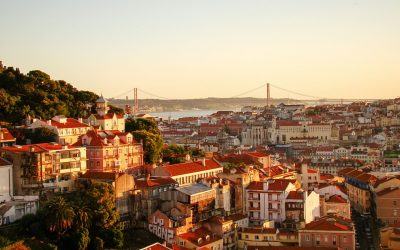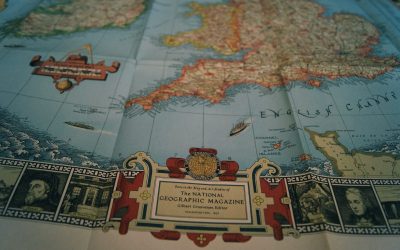How to move to Portugal permanently? This is a question we get a lot. If you’re targeting Madeira as your destination for a permanent life in Portugal, this guide helps you clear seven critical pitfalls. Madeira offers a compelling blend of climate, community and strategic benefits, but the path to legal residency and long-term success has become more complex in 2025. Follow this blueprint to avoid costly missteps.
1. Underestimating the New Naturalisation Rules
As of June 23, 2025, Portugal’s government has proposed doubling the residency requirement to apply for citizenship, from five to ten years, except for citizens of Portuguese‑speaking countries who may qualify after seven years. Applicants will soon also need to prove deeper cultural integration, knowledge of civic rights, and support for democratic principles. Failing to account for this change can result in frustration and delay.
2. Confusing Permanent Residency with Citizenship Timing
Permanent residency is still attainable after five years of continuous legal residence, whether you arrive on a D7 visa or Golden Visa, even in Madeira. Citizenship, however, may now require longer due to rule changes. Some sources mistakenly imply that permanent residence automatically leads to citizenship after one additional year. However, that only applies if the new legislation is finalised; it may not apply to non‑Portuguese speakers or non‑Lusophone natives.
3. Relying on Golden Visa Real Estate in Madeira
Portugal’s Golden Visa program has eliminated real estate investment options mainland-wide. Only Madeira remains free of that restriction, but processing time is extremely slow. Many applications are delayed for years, with lawsuits pending in the courts. Expats expecting a fast-track route via property should reconsider or expect severe delays.
4. Ignoring the Residency Permit Backlog via AIMA
The old SEF system has been replaced by AIMA, which has inherited a massive backlog of 400,000+ pending cases, including residence permit applications. Delays in biometrics appointments or approval can stretch to several months. If you count on moving and working immediately, prepare for processing delays even if your documents are submitted accurately.
5. Overlooking Madeira’s Unique Tax and Investment Regime
Madeira is home to the Madeira International Business Centre (MIBC), which offers corporate tax rates as low as 5% for eligible businesses operating internationally. The Autonomous Region’s income tax rates are also slightly lower than those in mainland Portugal. Ignoring these advantages—or assuming mainland tax rules apply—means you may leave substantial benefits untapped.
6. Skipping Portuguese Language and Integration Requirements
Even under the permanent residency pathway, applicants must demonstrate basic Portuguese proficiency (typically A2 level) and ties to the Portuguese community—via employment, civic participation, or local integration activities. Don’t assume speaking English alone is sufficient; passive income alone won’t meet integration benchmarks.
7. Disregarding Physical Presence Requirements after Permits
Different permit types come with varying thresholds of residency. For D7 or work-based permits, applicants must reside at least 8 months per year in Portugal to maintain citizenship or permanent residence eligibility. Golden Visa holders, by contrast, only need to spend seven days per year, but the mainland real estate options are now mostly excluded. Ensure you know which rule applies to your visa type. Madeira residency counts, but mainland limitations still affect documentation.
Why These Mistakes Matter, Especially for Madeira Enthusiasts
Madeira offers attractive perks: moderate cost of living, scenic beauty, strategic EU tax frameworks, and fewer Golden Visa real estate restrictions. But its autonomy also means it has its nuances. Assuming mainland rules apply wholesale can lead to missteps. Moreover, the new government’s tightening of naturalisation integration standards means regulatory compliance carries greater weight.
How to move to Portugal permanently: Action Plan
- Stay updated on June 2025 legislation as parliament votes on new naturalisation laws.
- Plan accordingly.
- Begin language training early.
- Secure an A2 certificate before seeking residency renewal or applying for permanent status.
- Choose your visa path strategically: if relying on investment, verify whether you’re applying via equity funds or business creation, not property.
- Account for AIMA delays. Submit your biometrics early and plan for multimonth processing.
- Track your time in the country carefully, depending on visa type: D7 vs. Golden Visa have very different physical presence requirements.
- Explore Madeira’s tax regime, including MIBC benefits and regional income tax rates, and consult a tax advisor familiar with Madeira-specific incentives.
Final Word
Avoiding these seven mistakes can transform how you move to Portugal permanently. Madeira remains a compelling destination for expats who do their homework on legal structures, timing, and integration obligations. Approach your transition with foresight, engage professional help, prepare for nominal delays, and leverage Madeira’s unique advantages to establish a successful, permanent life in Portugal.
The founding of Madeira Corporate Services dates back to 1996. MCS started as a corporate service provider in the Madeira International Business Center and rapidly became a leading management company… Read more




